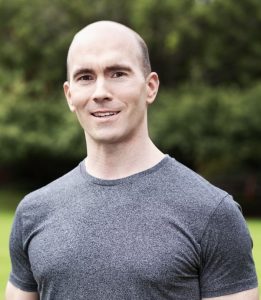Priests receiving payments under the federal government’s JobKeeper scheme – and passing on some of those funds to the church – is almost certainly unconstitutional, but unlikely to be challenged in court due to the potential financial liabilities.
Source: JobKeeper payments for priests? Is it unlawful – Monash Lens
Did you know that the federal government pays the wages of Catholic priests and other ministers of religion? And that the Catholic Church asks those priests to donate some of the money to the church? This is the latest controversy over the federal government’s JobKeeper wage subsidy scheme.
This is almost certainly unconstitutional – but that doesn’t really bother the federal government.
Priests and other religious practitioners weren’t eligible for JobKeeper payments when the taxpayer-funded wage subsidy commenced at the outset of the coronavirus lockdowns.
But Treasurer Josh Frydenberg made a formal amendment to the JobKeeper rules in May to include religious practitioners within the eligibility rules. He also changed the rules to make sure universities wouldn’t be eligible for JobKeeper.
The Nine Network newspapers revealed that a range of large religious denominations are the beneficiaries of this scheme. Recently, the ABC revealed that the Parramatta Catholic diocese has been asking its priests to donate “between $500 and $700 per fortnight” of their JobKeeper payments to the church to “assist with future payments and the balance sheet”.
The Australian Taxation Office website explains that the federal government provides eligible religious institutions such as the Catholic Church $1500 a fortnight for each of their religious practitioners “to perform religious activities”.
Public money for religious institutions
That’s an enormous amount of public money going to churches and other religious institutions to fund religious activities.
The Treasurer’s taxpayer-funded priests amendment is almost certainly unconstitutional.
The High Court has been clear that the federal government cannot fund religious activities.
In 1981, the High Court ruled that there was no constitutional problem with the federal government providing funding to Catholic schools. The argument in the so-called Defence of Government Schools, or DOGS case, relied on a section of the Australian constitution that prohibits federal parliament making “any law for establishing any religion”.
The High Court ruled that although public money goes to religious institutions, there’s no constitutional problem because the money is designed to be used for educational purposes. That money is not designed to be spent for religious purposes or on religious activities.
The Treasurer’s taxpayer-funded priests amendment is very different to funding for religious schools. It’s designed to directly fund religious activities.
The amendment itself says a religious practitioner is eligible for a JobKeeper wage subsidy if they’re undertaking activities “in pursuit of the individual’s vocation as a religious practitioner”. The ATO website says that the money is intended to fund religious practitioners “to perform religious activities”.
If the matter ever got to court, the taxpayer-funded priests amendment would almost certainly be struck down as invalid.
The JobKeeper taxpayer-funded priests amendment is not the only federal government funding of religious practitioners. There are at least two others.
The federal government gets away with spending public money in constitutionally dodgy ways because it knows that almost no one is game enough to challenge it in court.
The federal government continues to fund the school chaplains’ program, which in practice requires people to be Christian to get youth worker jobs in public schools.
As the National School Chaplaincy Association explains in a recent submission: “While chaplains must have underlying qualifications in youth work, community work or equivalent, school chaplaincy is religious in nature – providing social, emotional and spiritual support for students. Chaplains are religious workers.”
The federal government also funds military chaplains, who can only come from a small number of government-approved faith groups – even though a majority of Australian Defence Force personnel are not religious at all. The military chaplains program was the subject of a 2018 religious discrimination complaint to the Australian Human Rights Commission by a Canberra humanist hospital chaplain who was denied the opportunity to apply for a military chaplain job because he is not religious.
Things are slowly changing
In May, the navy announced it would be introducing non-religious chaplains alongside its religious chaplains. The army and the air force have not followed suit.
Federally-funded priests aren’t the only constitutionally suspect federal funding schemes. There are many others, including the now notorious sports grants program. That’s the program at the centre of the “sports rorts” saga that forced Bridget Mckenzie to resign as sports minister earlier this year.
The federal government gets away with spending public money in constitutionally dodgy ways because it knows that almost no one is game enough to challenge it in court. Court cases cost a lot of money, and you have to pay the government’s legal fees if you lose.
And to start a challenge, you need to convince the court that you’ve been directly affected. Almost everyone directly affected by constitutionally dodgy government funding is perfectly happy because they’re either receiving the money, or hoping to receive the money. They won’t be challenging.
Unless there’s some kind of miracle, the constitutionally suspect funding of religious practitioners is likely to continue until the whole JobKeeper scheme comes to an end.
 | Luke is a leading constitutional law scholar in the field of separation of religion and government and religious freedom under the Australian Constitution. The principal focus of his research is on developing a deeper and more sophisticated understanding of section 116 of the Australian Constitution in terms of its history and underlying purposes, its relationship and interaction with broader Australian constitutional culture and how it might be best interpreted and applied. Dr Beck was an RSA Fellow before joining the board of the Rationalist Society in October 2019. |

